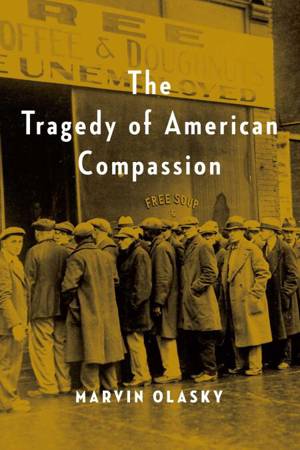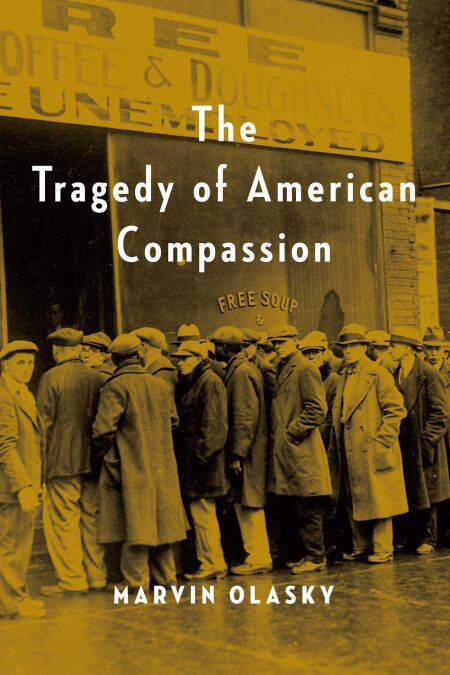
Je cadeautjes zeker op tijd in huis hebben voor de feestdagen? Kom langs in onze winkels en vind het perfecte geschenk!
- Afhalen na 1 uur in een winkel met voorraad
- Gratis thuislevering in België vanaf € 30
- Ruim aanbod met 7 miljoen producten
Je cadeautjes zeker op tijd in huis hebben voor de feestdagen? Kom langs in onze winkels en vind het perfecte geschenk!
- Afhalen na 1 uur in een winkel met voorraad
- Gratis thuislevering in België vanaf € 30
- Ruim aanbod met 7 miljoen producten
Zoeken
€ 11,17
+ 11 punten
Uitvoering
Omschrijving
Can a man be content with a piece of bread and some change tossed his way from a passerby?
Today's modern welfare state expects he can. Those who control the money in our society think that giving a dollar at the train station and then appropriating a billion dollars for federal housing can cure the ails of the homeless and the poor.
But the crisis of the modern welfare state is more than a crisis of government. Private charities that dispense aid indiscriminately while ignoring the moral and spiritual needs of the poor are also to blame. Like animals in the zoo at feeding time, the needy are given a plate of food but rarely receive the love and time that only a person can give.
Poverty fighters 100 years ago were more compassionate--in the literal meaning of "suffering with"--than many of us are now. They opened their own homes to deserted women and children. They offered employment to nomadic men who had abandoned hope and human contact. Most significantly, they made moral demands on recipients of aid. They saw family, work, freedom, and faith as central to our being, not as life-style options. No one was allowed to eat and run.
Some kind of honest labor was required of those who needed food or a place to sleep in return. Woodyards next to homeless shelters were as common in the 1890s as liquor stores are in the 1990s. When an able bodied woman sought relief, she was given a seat in the "sewing room" and asked to work on garments given to the helpless poor.
To begin where poverty fighters a century ago began, Marvin Olasky emphasizes seven ideas that recent welfare practice has put aside: affiliation, bonding, categorization, discernment, employment, freedom, and most importantly, belief in God. In the end, not much will be accomplished without a spiritual revival that transforms the everyday advice we give and receive, and the way we lead our lives.
It's time we realized that there is only so much that public policy can do. That only a richness of spirit can battle a poverty of soul. The century-old question--does any given scheme of help... make great demands on men to give themselves to their brethren?--is still the right one to ask. Most of our 20th-century schemes have failed. It's time to learn from the warm hearts and hard heads of the 19th-century.
Today's modern welfare state expects he can. Those who control the money in our society think that giving a dollar at the train station and then appropriating a billion dollars for federal housing can cure the ails of the homeless and the poor.
But the crisis of the modern welfare state is more than a crisis of government. Private charities that dispense aid indiscriminately while ignoring the moral and spiritual needs of the poor are also to blame. Like animals in the zoo at feeding time, the needy are given a plate of food but rarely receive the love and time that only a person can give.
Poverty fighters 100 years ago were more compassionate--in the literal meaning of "suffering with"--than many of us are now. They opened their own homes to deserted women and children. They offered employment to nomadic men who had abandoned hope and human contact. Most significantly, they made moral demands on recipients of aid. They saw family, work, freedom, and faith as central to our being, not as life-style options. No one was allowed to eat and run.
Some kind of honest labor was required of those who needed food or a place to sleep in return. Woodyards next to homeless shelters were as common in the 1890s as liquor stores are in the 1990s. When an able bodied woman sought relief, she was given a seat in the "sewing room" and asked to work on garments given to the helpless poor.
To begin where poverty fighters a century ago began, Marvin Olasky emphasizes seven ideas that recent welfare practice has put aside: affiliation, bonding, categorization, discernment, employment, freedom, and most importantly, belief in God. In the end, not much will be accomplished without a spiritual revival that transforms the everyday advice we give and receive, and the way we lead our lives.
It's time we realized that there is only so much that public policy can do. That only a richness of spirit can battle a poverty of soul. The century-old question--does any given scheme of help... make great demands on men to give themselves to their brethren?--is still the right one to ask. Most of our 20th-century schemes have failed. It's time to learn from the warm hearts and hard heads of the 19th-century.
Specificaties
Betrokkenen
- Auteur(s):
- Uitgeverij:
Inhoud
- Aantal bladzijden:
- 300
- Taal:
- Engels
Eigenschappen
- Productcode (EAN):
- 9781684514175
- Verschijningsdatum:
- 24/10/2022
- Uitvoering:
- E-book
- Beveiligd met:
- Adobe DRM
- Formaat:
- ePub

Alleen bij Standaard Boekhandel
+ 11 punten op je klantenkaart van Standaard Boekhandel
Beoordelingen
We publiceren alleen reviews die voldoen aan de voorwaarden voor reviews. Bekijk onze voorwaarden voor reviews.









